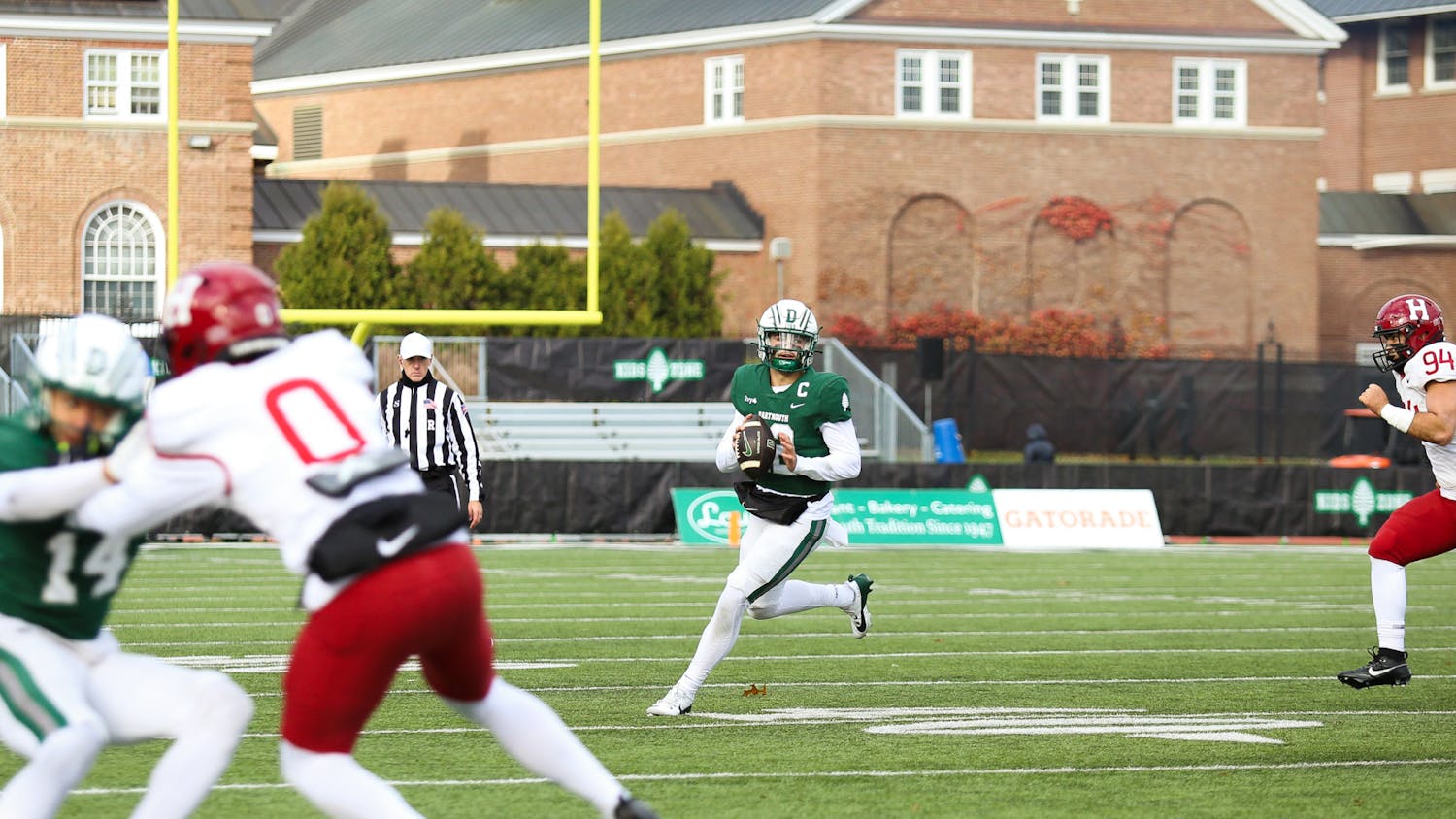Ken Cucuel has been an assistant coach for the Dartmouth men’s squash team for 23 years. In addition to his long-standing stint as a coach, Cucuel won national championships as a player in the 65-plus division in 1999 and in the 70-plus division in 2004 and 2005. He also placed third at the World Masters Games in 2005 and fourth in 2009 in the 70-plus and 75-plus divisions, respectively.
How did you become an assistant coach at Dartmouth?
KC: I originally worked in a bank across the street for three years, and then I transferred up to the campus and became director of student loans. I retired in 1994 from the college. Chris Brownell ’87, the squash coach at the time, heard that I was retiring and said, “Why don’t you come down to the squash courts?” I declined at first but then she persuaded me to. I came down and then began as an assistant coach in 1994.
How did you begin playing squash?
KC: I used to be a swimmer in high school and college. I came up here to work in a bank, and I only had a half-hour break so I couldn’t go swimming. It also got too cold for me to walk down and back after swimming so I had to find some other leisure activity. There were three or four other guys that were interested in beginning squash, so I joined them. They eventually moved or stopped playing, but I continued to play.
How has squash changed in the 23 years you have coached here?
KC: When I started, squash was a hard ball sport and then in the early 1990s they transitioned to a soft ball sport because most of the world played soft ball. So that’s how I went into soft ball and adjusted.
What is your role with the team?
KC: In my younger days, I was an assistant coach, so I was much more involved in helping the players out. Now, I’m a volunteer coach and into my ’80s, I go and watch them play. Now I have learned rather than tell them what to do, I say “You might want to think about doing this or that,” and it goes over much better.
How did you manage to stay in shape to compete at such a high level in your late adulthood?
KC: I did not like to practice. I would only play games with the noon-time crowds at the courts. It is much more fun to play than it is to train.
What do you enjoy most about coaching the squash team at Dartmouth?
KC: I love the players. The players are fun. They are all students and so much younger than me, but they have become so much better coming into college than when I first started seeing them. I watch them play, and the women as well, and they hit the ball harder than I ever did.
What do you consider the best memory of a game in your coaching experience so far?
KC: The students are great. Every year I have coached has been quite memorable because of the athletes I get to be around as an assistant coach and as a volunteer coach.
What do you consider to be the best memory of your professional career?
KC: My most interesting memory in my career was having played in the World Masters Games over in Australia; I placed third. That was a big accomplishment for me because I had not picked up the game of squash until I was 40 years old. Squash has been good because it has allowed me to travel all over the world.
Now into your 23rd year of coaching, what goals and expectations do you hope to see the team achieve?
KC: As a coach, you would like to see the team rise to the top. We may not beat some of the Ivies, but I would like us to develop our team and get into the top half of the rankings.
How would you describe your relationship with the coaching staff and players on the team?
KC: I have gone through four or five coaches, and I have gotten along with all of them. They are still the coaches. If they say something to the players that I may or may not agree with, I respect their opinions because they are the coaches. They have all been very nice and very good to me. Traveling with the team is a lot of fun.
This interview has been edited and condensed for clarity and length.



